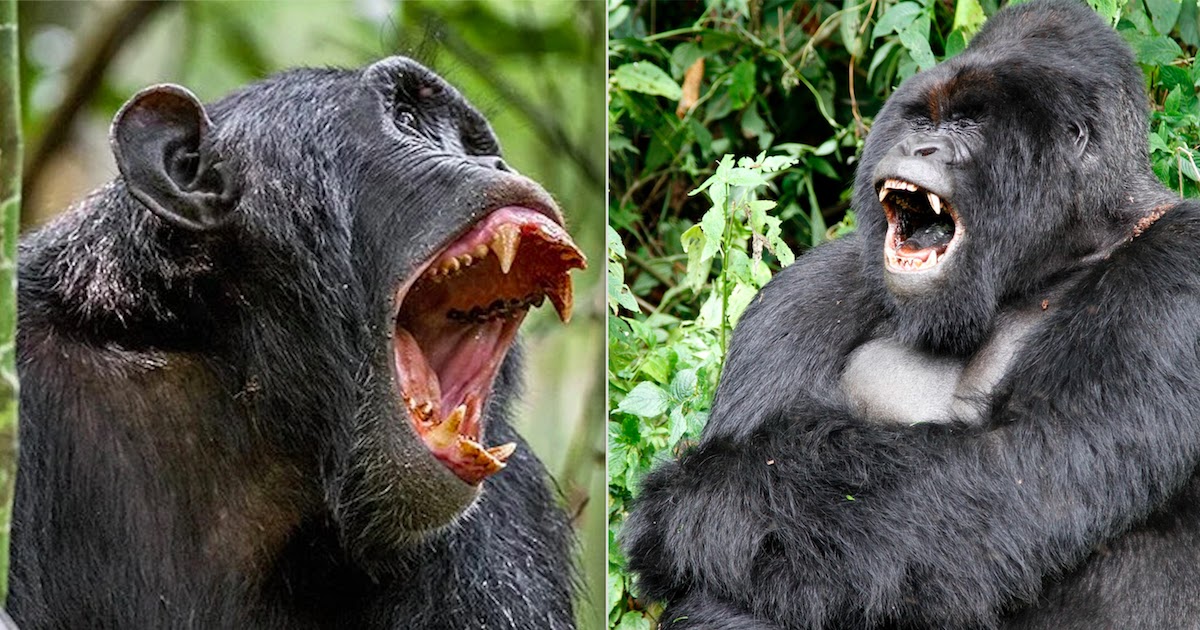
For the first time, animal researchers have witnessed chimpanzees and gorillas fighting each other in the wild. The two encounters were reported in 'Scientific Reports' and took place in Loango National Park in Gabon in 2019.
The behaviour is highly unusual, and chimpanzees and gorillas live in many areas together without confrontation.
The first incident in February 2019 involved 5 gorillas and 18 chimpanzees. The second incident, in December 2019, involved 7 gorillas and 27 chimpanzees. Both lasted in the region of an hour.
Sadly, in both cases the chimpanzees were able to separate a baby gorilla from its parents and kill it, the chimpanzees then proceeded to eat the infants. The chimps themselves suffered various wounds but none were killed. None of the adult gorillas were mortally wounded.
Chimpanzees are well known to hunt and kill other monkeys and apes, as well as other meats, but they have never been seen before chasing down, stealing, and eating a baby gorilla.
Researchers are baffled as to why the chimpanzees acted the way they did, though it indicates that there may be a shortage of food in the area and that they are competing with the gorillas for territory.
Tobias Deschner from the Max Planck Institute for Evolutionary Anthropology said of the incidents:
"Our observations provide the first evidence that the presence of chimpanzees can have a lethal impact on gorillas. We now want to investigate the factors triggering these surprisingly aggressive interactions."
He added:
"It could be that sharing of food resources by chimpanzees, gorillas, and forest elephants in the Loango National Park results in increased competition and sometimes even in lethal interactions between the two great ape species."
Simone Pika from the University of Osnabrück, a study co-author, stated:
"We are only at the beginning to understand the effects of competition on interactions between the two great ape species in Loango. Our study shows that there is still a lot to explore and discover about our closest living relatives, and that Loango National Park with its unique mosaic habitat is a unique place to do so."
[h/t: Science Alert]













COMMENTS